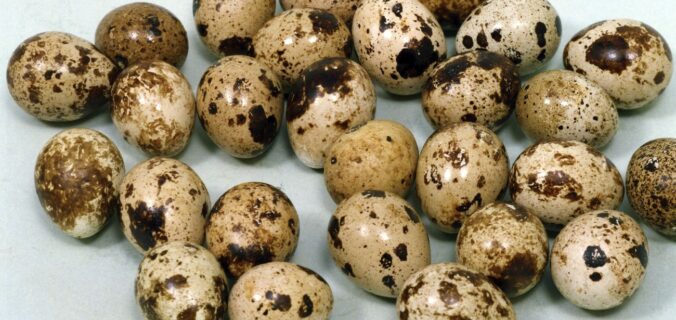If you’re looking to add some feathered friends to your homestead or backyard oasis, why not consider keeping and raising quails for eggs? Quails are delightful little birds that offer a plethora of benefits, from their small size to their prolific egg-laying capabilities. In this blog post, let’s dive into the world of keeping and raising quails for eggs and discover why these charming birds might be the perfect addition to your flock.
The Appeal of Quails for Egg Production:
Quails are often hailed as egg-laying champions, and for good reason. Despite their diminutive size, these birds are prolific layers, churning out eggs at an impressive rate. Coturnix quails produce reliably upwards of 200 eggs per year. That’s a lot of delicious, protein-packed goodness in a small package!
Space-Saving Solutions:
One of the primary reasons why quails are gaining popularity among backyard enthusiasts is their small size and minimal space requirements. Unlike chickens, quails don’t need sprawling coops or expansive runs to thrive. A modest-sized cage or hutch is often sufficient to accommodate a small flock of quails, making them ideal for urban or suburban environments where space may be limited.
Low-Maintenance Companions:
Other poultry species require more maintenance than quails. They require minimal upkeep and are relatively independent, making them perfect for busy homesteaders or first-time poultry keepers. With a straightforward diet, regular access to clean water, and a clean living environment, quails are happy as can be.
Getting Started with Quail Keeping:
1. Choosing the Right Quail Breed: There are several quail breeds to choose from, but Coturnix quails are often recommended for beginners due to their hardiness, docile nature, and excellent egg-laying abilities. Consider factors such as egg production, temperament, and size when selecting the right breed for your flock.
2. Creating the Perfect Quail Habitat: Quails are ground-dwelling birds that appreciate ample space to move around and forage. Set up a sturdy cage or hutch with secure wire mesh to keep your quails safe from predators. Provide a comfortable bedding material, such as pine shavings or straw, and ensure proper ventilation to maintain a healthy environment.
3. Feeding Your Quails: Quails have relatively simple dietary needs, requiring a balanced diet rich in protein to support egg production. Commercial quail feed is readily available and formulated to meet their nutritional requirements. Supplement their diet with fresh greens, vegetables, and occasional treats for added variety and nutrition.
4. Collecting and Enjoying Quail Eggs: Once your quails are settled into their new home, you can look forward to collecting fresh, delicious eggs on a regular basis. Quail eggs are slightly smaller than chicken eggs but pack a nutritional punch, containing high levels of protein, vitamins, and minerals. Use them in your favorite recipes, from omelets and frittatas to baked goods and salads, or enjoy them simply boiled or fried for a nutritious snack.
The Joy of Quail Keeping:
Keeping and raising quails for eggs is not just a practical endeavor – it’s also incredibly rewarding and enjoyable. There’s something truly satisfying about tending to your flock, collecting fresh eggs, and enjoying the fruits of your labor. Plus, the gentle clucking and charming antics of these feathered friends add a delightful touch to any backyard or homestead.
Conclusion:
If you’re considering adding some feathered companions to your backyard or homestead, quails for egg production are an excellent choice. With their small size, prolific egg-laying capabilities, and low-maintenance nature, quails offer numerous benefits for both novice and experienced poultry keepers alike. So, why not embark on a quail-keeping adventure and enjoy the joy of fresh, nutritious eggs straight from your backyard? Here’s to happy quail keeping and egg collecting!

